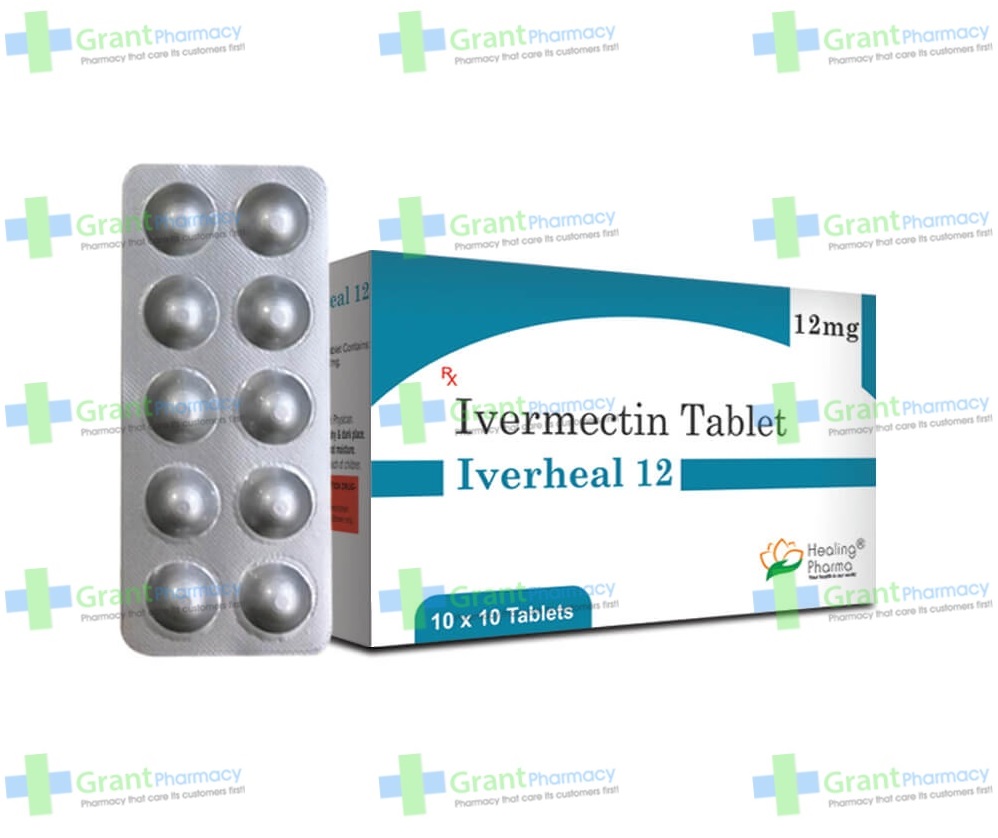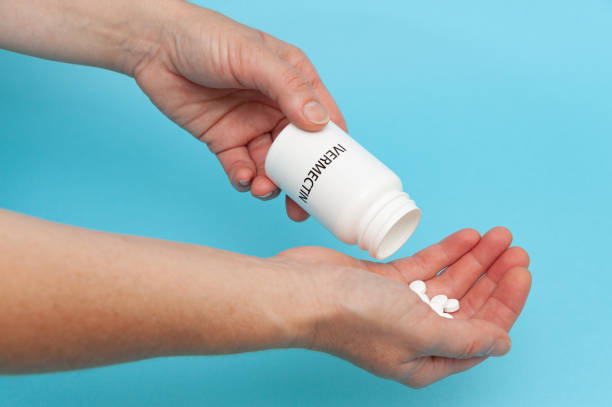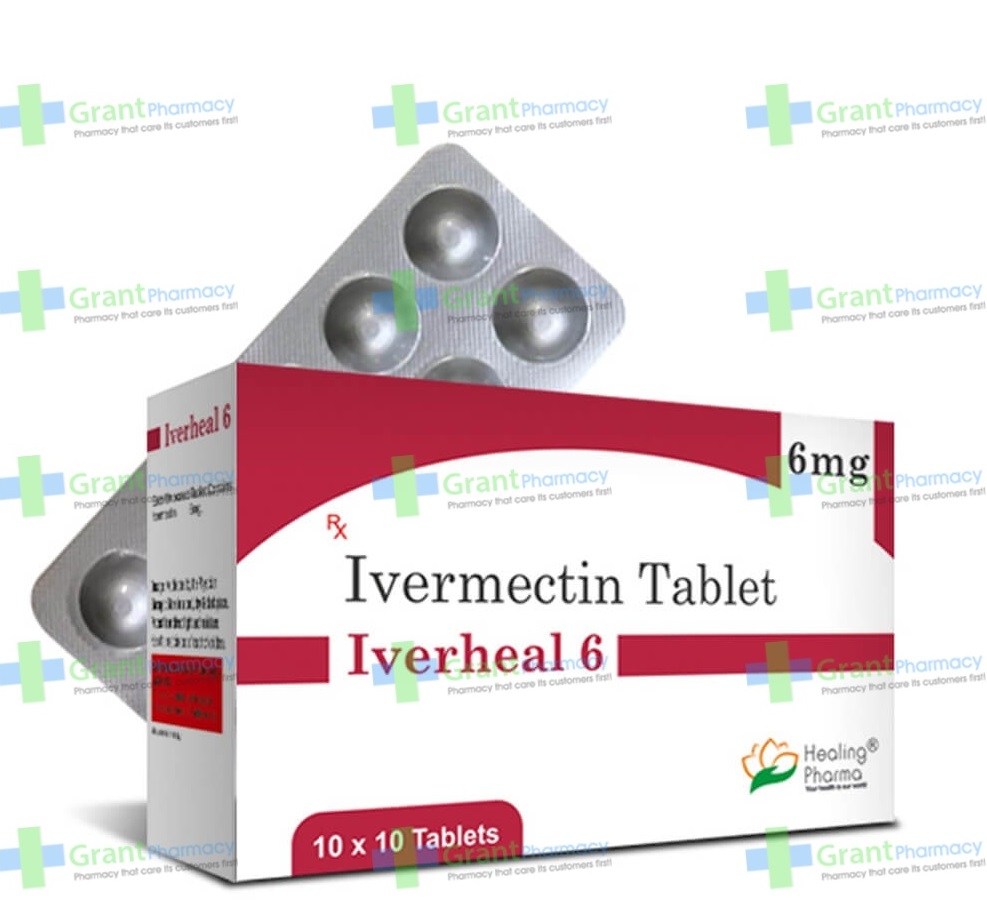







Parasitic infections are very common in certain regions across the world. When it comes to parasitic infection treatment, Ivermectin comes as the most prescribed medicine. Ivermectin is a generic medication that is available with a prescription only. It is used for the treatment of onchocerciasis and strongyloidiasis.
The anti-parasitic drug Ivermectin is prescribed to treat various neglected tropical diseases. It is obtainable as an oral tablet, topical creams, and lotions to apply on the skin and Ivermectin injection. The most common brand name for Ivermectin is Stromectol. Topical Ivermectin products can be used to treat rosacea and head lice.
FDA-approved Ivermectin to treat infections caused by whipworm, hookworm, and parasitic worms. It is also prescribed for many other conditions such as river blindness, and intestinal strongyloidiasis and to treat scabies.
The antiviral activity of Ivermectin has been demonstrated to be an effective treatment against a range of DNA and RNA viruses including Zika, dengue, and yellow fever among others.
Strongyloidiasis is a parasitic infection that is caused by Strongyloides stercoralis roundworms. These worms are majorly found in subtropical and tropical climates. Most people acquire these worms through contact with contaminated soil.
Once you are infected with these roundworms, they start moving towards the small intestine. Here comes the use of Ivermectin to treat the infection. The patient may or may not experience symptoms including pain or burning sensation in the upper abdomen, diarrhea or constipation, vomiting, skin rash, cough, and weight loss. Ivermectin cures strongyloidiasis by destroying roundworms in the intestines.
Onchocerciasis is a parasitic infection that affects the eyes or skin. The infection is caused by a worm called Onchoerca volvulus. The larvae of these worms are transferred through blackfly bites mostly found in tropical regions.
Once you get exposed to this parasite, the larvae develop into adult worms within 6 to 12 months and start producing more larvae. Symptoms of these infections occur as larvae die inside the body. Usually, symptoms are not visible initially and may take some months to appear.
Once you begin experiencing symptoms, these can be severe. Common symptoms include thin and brittle skin, extreme itching in skin and eyes, variations in skin pigmentation, light sensitivity, cloudiness in the lens of eyes, loss of vision, and swelling in lymph nodes.
Ivermectin treats river blindness by preventing the worms from producing more larvae in the body. If the condition is left untreated, it may lead to blindness.
Oral Ivermectin is supposed to begin its action as soon as you take it however it may take some time to ease your symptoms. The antiparasitic drug disturbs the muscle and nerve cells of infection-causing parasites making the parasites paralyzed or killing them. How long the Ivermectin takes to kill parasites depends on the type and severity of the infection.
A study revealed that most patients got rid of Strongyloides larvae within 3 to 4 weeks after taking a single dose of Ivermectin. There were no larvae found in their stools. Another study concerning the use of Ivermectin to treat river blindness revealed that the count of parasites in skin samples decreased by 80% just after 3 days of treatment and over 99% after getting Ivermectin treatment for 3 months.

Ivermectin dose will be different for various patients. Follow your healthcare team’s guidelines. If your doctor has prescribed you a different dose, do not modify it without consulting them.
The exact dose of Ivermectin is based on the type of parasitic infection that needs to be treated. Ivermectin medication can be prescribed to adults and children with a body weight of 15 kg (33 pounds) and above.
Usually, healthcare professionals prescribe one dose (200 mg/kg) of Ivermectin to treat strongyloidiasis in the intestinal tract. You may be prescribed additional doses after examining your stool reports for larvae.
Generally, one test is recommended per month for a few months after the Ivermectin dose. If larvae still exist in your stool, your healthcare provider will suggest taking more doses of Ivermectin.
Normally single Ivermectin dose (150 mg/kg) is prescribed to treat onchocerciasis or river blindness however additional doses may be given to certain patients. The next dose may be prescribed after 3 or 12 months of the first dose.
Ivermectin may make some patients feel dizzy. To avoid dizziness stand up slowly when you are sitting or sitting. Carefully climb up or down on stairs.
Do not take Ivermectin if you ever have an allergic reaction to it. Inform your healthcare team if you have any other allergies to certain drugs, foods preservatives, etc. Although a severe allergic reaction to this medication is rare but may cause severe drowsiness, nervous system problems or lack of attention.
To ensure the safety of this medication, tell your healthcare provider if you have liver disease, kidney disease, cancer, HIV, AIDS, or any other health condition that can make your immune system weak.
How this medication affects the unborn baby is not known. Make sure your healthcare team is aware if you are pregnant or breastfeeding your baby. This medicine can pass into the breast milk and may harm the baby. Discuss the risks and benefits of this drug with your healthcare provider.
Ivermectin intended for animal use should not be considered for human use. Veterinary products are extremely concentrated and may cause an overdose when consumed by humans. Misuse and Overdose of Ivermectin can cause serious adverse effects.
Make sure to have a stool examination after taking Ivermectin to be sure the infection has cleared up. Based on the stool examination report treatment may be extended.
Drinking alcohol while taking Ivermectin can increase the likelihood of certain side effects. There is is recommended to avoid drinking alcohol during Ivermectin treatment to get the best out of this medication.

The healthcare professional will guide you on how to use this medication. Carefully follow your doctor’s instructions. Take Ivermectin oral tablet with water before a meal on an empty stomach. Never take larger doses of Ivermectin and for longer than suggested by your doctor.
Take Ivermectin properly as recommended by your healthcare team to treat your infection effectively. If you are taking Ivermectin to treat scabies, take it after a meal to allow better absorption of this medicine. Inappropriate use of this drug or high dose Ivermectin can cause serious side effects.
The extent of treatment depends on what type of infection you are suffering from. Repeated doses may be given to completely eradicate the parasitic infection.
Ivermectin is generally a single-dose treatment so there is no chance of missing doses. In case you are on a dosing schedule, take the missed dose straightaway as you remember or ask your doctor.
Ivermectin should not be taken more than the prescribed amount. Consuming too much of Ivermectin may cause serious side effects. The symptoms caused by an Ivermectin overdose include drowsiness, coma, trouble breathing, confusion, and disorientation. If someone has any of these symptoms, get emergency medical help or contact the nearest poison control center.
Several clinical trials have been performed to investigate the capability of Ivermectin against the coronavirus SARS-CoV-2 virus. The Food and Drug Administration (FDA) and World Health Organization (WHO) do not recommend using Ivermectin to treat or prevent covid 19 except in clinical trials.
As per the Covid-19 Treatment Guidelines Panel, currently, there is insufficient evidence to recommend the use of Ivermectin in patients with covid 19 to treat mild to severe symptoms. Various clinical studies revealed no improvements in patients suffering from covid 19.
The occurrence and extent of side effects depend on your age, severity of infection, other health conditions you are suffering from, and other medications you are taking. Mild and more common side effects of this drug are:
Dizziness, appetite loss
Stomach pain
Diarrhea
constipation
fever
headache
itchy skin
joint pain

Certain other drugs can interact with Ivermectin and impact how it works to fight parasitic infections. Some prescription medications, over-the-counter medicines, herbal products, and vitamins can interact with Ivermectin and may also increase the chances of side effects. Make sure your doctor knows about all the medications you are taking.
Some common drugs that can interact with Ivermectin include:
Barbiturates (Butalbital and Phenobarbital)
Benzodiazepines (Lorazepam and Clonazepam)
Sodium oxybate
Valproic acid
Warfarin
Erythromycin
Ivermectin is an effective antiparasitic medication that successfully treats certain parasitic infections. It can prescribed to treat parasitic infections in children (above 15 kg body weight) and adults. Typically Ivermectin is prescribed as a single-dose treatment however additional doses may be given to completely eradicate the infection. The drug-associated side effects are usually mild and go away within a few days. It is strictly advised not to use veterinary Ivermectin products as it can be fatal.
Primarily Ivermectin is intended for humans to treat strongyloidiasis and onchocerciasis and to fight lymphatic filariasis as a combination treatment with the Albenadzole. It is also prescribed off-label to successfully treat various other diseases. It has established extreme safety with the least reported adverse events when used orally to fight parasitic infections. The reported side effects are usually mild and do not require any specific treatment or discontinuation of Ivermectin.
World Health Organization has not approved Ivermectin use to treat COVID-19 patients as it is used to treat parasitic diseases. WHO does not recommend using Ivermectin products for treating or preventing coronavirus disease progression due to lack of evidence.
Ivermectin is safe for human use and can be successfully used to treat parasitic infections. Make sure you take it precisely as advised by your healthcare team.
Ivermectin lotion for head lice treatment can be purchased over the counter. Other forms of Ivermectin are only obtainable with a prescription. Buy Ivermectin at reasonable rates from GrantPharmacy online and avail great discounts.
Ivermectin is not associated with infertility problems. Infertility is not even stated in the possible side effects of this drug. Animal studies involving 3 times higher doses than recommended for humans have not demonstrated any fertility-related adverse effects.



